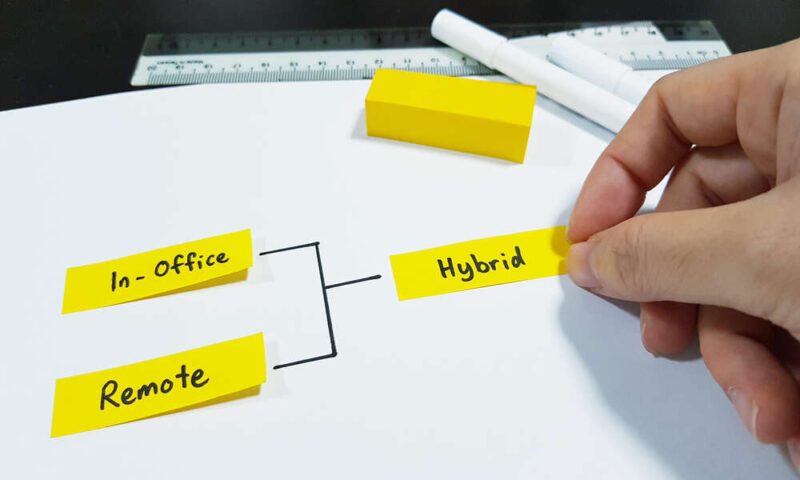
Successful Hybrid Work Model Requires Intentionality and Flexibility
While organizations have adopted hybrid workplaces to give staff more flexibility, recent research suggests this model is most exhausting to employees. To combat this, groups must approach hybrid with flexibility and intentionality top of mind.
While many organizations have transitioned to a hybrid work model, recent data shows that there are already rumblings of discontent, with many workers finding hybrid work more exhausting than either fully remote or full-time office-based work.
So, how do associations do hybrid work in a way that leaves employees and managers feeling good?
First, organizations may need to poll their employees to figure out what is and isn’t working for them. According to TINYpulse’s State of Employee Engagement Q3 2021 report, hybrid work is the most exhausting to employees. But when it comes to fully remote work, the data shows two different sides to the story. According to report, HR managers find this setup most exhausting, while employees find remote work least exhausting.
To alleviate some of the exhaustion issues noted by TINYpulse, a new report from the Association for Talent Development gives organizations another way to look at how they might structure their workplace. According to Developing Hybrid Teams: Combining Office and Remote Work, while many offices have prescribed hybrid to be working in the office some days and working at home others, the report notes that hybrid can also include some employees working remote all the time, while others work in-person all or most of the time. A preference-based setup might alleviate some of the exhaustion expressed by employees.
Make the Most of Hybrid Teams
No matter what hybrid setup you go with, the ATD report notes that for hybrid teams to work well, there are some key components to focus on.
“I refer to it as the three Ts managers need: the tools, the technology, and the training,” said Jennifer Homer, vice president of external relations at ATD. “Those three things are important and also being intentional about how they support their teams to really excel in a hybrid environment.”
Homer said managers also need to be trained on how to best make hybrid teams feel connected. “One of the things that we found was the biggest skills gap for managers was team-building,” Homer said. “Find ways to help the team feel more connected with each other and to each other. It’s definitely something important for managers to work on and to get better on. And that is associated with better organizational performance as well.”
Another important factor in hybrid environments is to make sure everyone has an opportunity to contribute, and that meetings—particularly ones where staff are asked to come in—are purposeful.
“You really have to be intentional about making sure that you’re including everyone’s opinions and finding ways to involve everyone in that collaboration,” Homer said. “Make sure that you know the point of your meeting, the reason for getting together. Whether it’s to brainstorm or whether it’s to have a meeting with a particular agenda, be sure that you are getting to that endgame.”
Because hybrid is new for most organizations, and no two organizations are the same, it’s a good idea to experiment and try different things to figure out what is going to work best for your team.
“Both ask your teams what works well and also experiment,” Homer said. “I think it’s a combination of seeing what works well for your teams, the culture of your organization, and seeing what worked well for their productivity.”
If organizations find things aren’t working, be sure to ask for feedback and be willing to change. This can include everything from the number of in-office days, to core hours, to team meeting norms. That ability to be nimble and flexible will be key to the success of hybrid teams.
“With the changing landscape and the evolving needs of companies and employees and also the talent needs, policies may need to adjust and be flexible,” Homer said.
How is your association handling hybrid work? Share in the comments.
(celiaosk/iStock/Getty Images Plus)






Comments